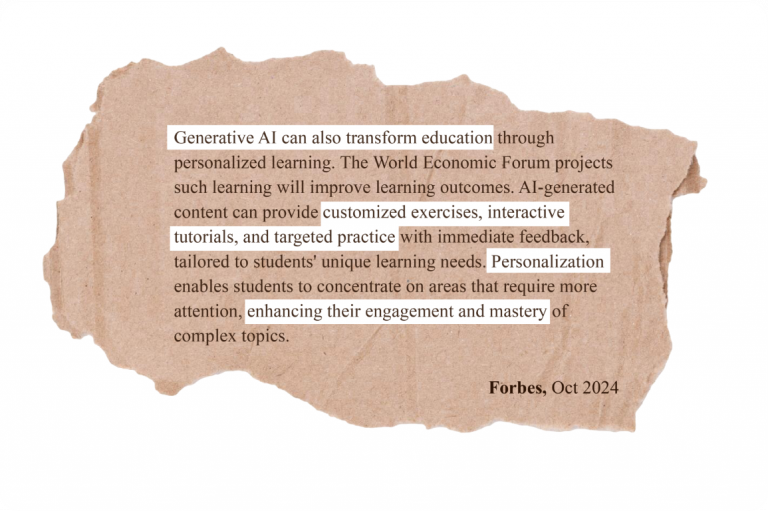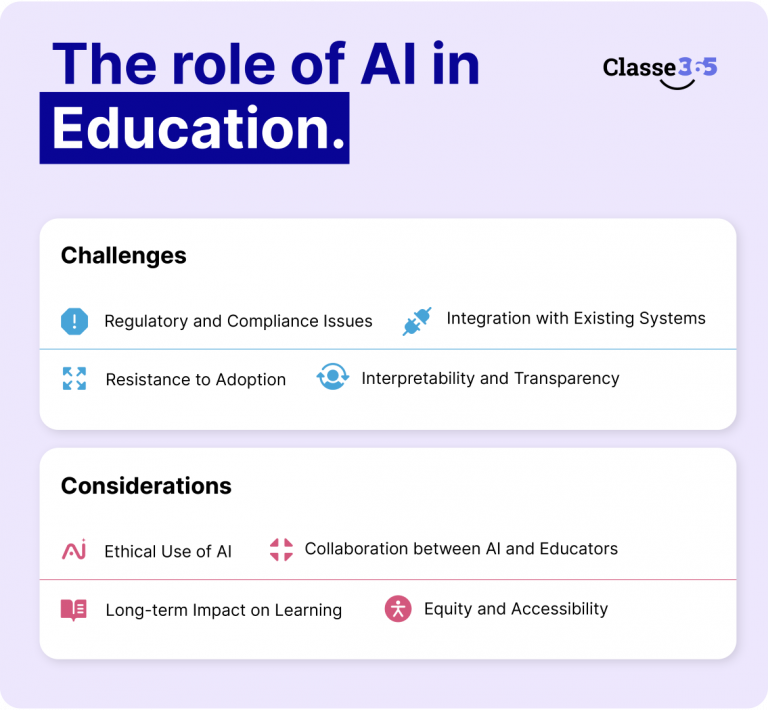In the evolving world of education, technology has been a critical driver of change, revolutionizing everything from classroom instruction to administrative processes. Artificial Intelligence (AI) has emerged as one of the most impactful innovations, especially in how it is reshaping the educational management system. From administrative automation to personalized learning, AI is transforming educational environments, making them more efficient and adaptable to the needs of students and educators alike.
This blog explores how AI is being integrated into educational management systems, discussing the latest developments covered by top media outlets. We will also discuss the role of AI in education, how it benefits institutions, and its transformative power.
Understanding AI in Education
AI in education uses artificial intelligence to improve the learning experience, administrative tasks, and overall educational management. Its capabilities include data-driven insights, adaptive learning tools, automated administrative functions, and personalized education plans.
In recent years, AI has been utilized for tasks like grading, tracking student performance, and predicting potential learning challenges. The role of AI in education is not just limited to automation; it plays a significant part in making the system more responsive and effective
According to a New York Times article published in early 2024, many institutions are adopting AI-based platforms to streamline educational processes. For instance, AI helps reduce administrative workload by automating attendance tracking, scheduling, and performance reporting. Integrating AI in an educational management system also enables institutions to make data-driven decisions, enhancing the overall experience for students and educators.
Key Applications of AI in the Educational Management System
A. Personalized Learning
One of the most well-known applications of AI is its ability to personalize education. AI-driven platforms, such as Classe365, and Coursera, and EdTech solutions like Squirrel AI and Century Tech offer adaptive learning systems that analyze student data to tailor lessons based on individual strengths and weaknesses.
By integrating AI into the educational management system, institutions can cater to diverse learning needs. The system can suggest customized resources, assign appropriate course content, and even offer specific feedback to help students achieve their goals. This leads to more personalized education plans that keep students engaged and motivated, a significant benefit of AI in education.
B. Automation of Administrative Tasks
AI is a game-changer that automates repetitive administrative tasks. In many institutions, managing student records, schedules, grading, and reporting can be time-consuming. Institutions are going for AI-integrated educational management systems like Classe365, Alma, Jenzabar, etc. (Check out how they function: Jenzabar, Alma, Classe365) to help automate tasks, allowing educators to focus on core teaching activities.
These platforms can automate grading, generate performance reports, and even predict which students may need additional support based on historical data. According to The Guardian, AI’s role in automating administrative tasks can reduce errors and improve operational efficiency in schools and universities.
C. Enhanced Student Support
AI tools like chatbots and virtual assistants have gained popularity in educational settings. Institutions like Georgia State University have adopted AI-driven chatbots to provide 24/7 assistance to students. These AI systems can answer student queries, assist with enrollment processes, and guide students through complex administrative tasks without needing human intervention.
Inside Higher Ed reports that using AI chatbots for student support has improved student retention rates by 20%. This reflects the growing role of AI in education, especially in improving communication between institutions and students, which is an essential element of an efficient educational management system.
D. Predictive Analytics and Data-Driven Insights
Another exciting application of AI in education is predictive analytics. By analyzing vast amounts of data, AI can identify trends, predict student success, and even alert administrators when a student may be at risk of underperforming. Adaptive learning solutions provide real-time feedback to both students and educators.

The educational management system benefits significantly from AI’s data-driven insights, as institutions can make more informed decisions regarding curriculum design, student engagement, and resource allocation.
Benefits of AI in Education
A. Improved Learning Outcomes
One of the key benefits of AI in education is the potential to enhance learning outcomes. AI tools can provide personalized feedback and learning pathways, ensuring that students can learn at their own pace. This is especially helpful for students who may need additional support or those who excel and want to move ahead faster.
Platforms like DreamBox and Elevate K-12 have demonstrated how AI-powered adaptive learning can improve student performance in subjects like mathematics and science. According to a recent Washington Post article, schools using AI tools to personalize education reported a 15% increase in student engagement and a 10% improvement in test scores.
B. Reduced Teacher Workload
AI significantly reduces the administrative burden on educators by automating routine tasks such as grading, attendance tracking, and lesson planning. As a result, teachers can dedicate more time to developing effective lesson plans and focusing on student interaction.
A study highlighted in Education Week found that schools incorporating AI-powered platforms like Gradescope, which automates grading, reduced the time spent on grading by up to 60%. This gives teachers more time to engage with students and focus on higher-order teaching tasks. Similarly, platforms like Classe365 offer customized grade book options where teachers can make it as elaborative and self-explanatory as they can.
C. Better Access to Education
The integration of AI is also helping to improve access to quality education. With AI-powered tools like Carnegie Learning, which provides intelligent tutoring systems, students from underserved communities can access high-quality educational resources. AI’s ability to bridge the gap between students and education materials, even in remote or underfunded areas, represents one of the most compelling benefits of AI in education.
D. Real-Time Feedback
Another crucial benefit of AI in education is the ability to provide real-time feedback to both students and educators. AI systems continuously monitor student progress, identify learning gaps, and suggest immediate interventions. Tools like Quizlet and Socrative have built-in AI features that give students instant feedback on their performance, helping them correct mistakes and learn more efficiently.
According to TechCrunch, AI-powered platforms offering real-time feedback can improve student performance by as much as 25%, as students receive guidance exactly when it is most needed.
The Role of AI in Education: Challenges and Considerations
While the role of AI in education is increasingly recognized as transformative, it also comes with challenges. Some educators express concerns over data privacy and the ethical use of AI in tracking and analyzing student behavior. Additionally, there is apprehension about over-reliance on technology, which could potentially reduce the need for human educators in some areas.
However, the consensus is that AI should be viewed as a tool that complements human teachers rather than replaces them. As outlined by The Economist, the most effective use of AI is in areas where it can enhance the teacher-student relationship, providing tools to streamline teaching while allowing educators to focus on what they do best—teaching.

AI in Education: The Future Outlook
As AI continues to evolve, its impact on the educational management system will grow. Future trends point to the increasing use of AI for virtual classrooms, more sophisticated adaptive learning systems, and even AI-powered tutors capable of providing one-on-one assistance to students.
Educational institutions must keep pace with these developments. The more AI systems are integrated into education and artificial intelligence research, the more comprehensive and effective these systems will become.
AI integration is undeniably transforming the educational management system. From personalized learning and administrative automation to data-driven insights and enhanced student support, the role of AI in education is profound. While challenges remain, the benefits of AI in education—from improving learning outcomes to reducing administrative burdens—are immense. As educational institutions continue to adopt AI technologies, the future of education promises to be more innovative, inclusive, and student-centered. With ongoing developments, and Education Management tools like Classe365, Alma, and PowerSchool we can expect AI to play an even more significant role in the global education system in the years to come.
